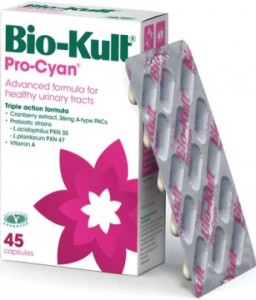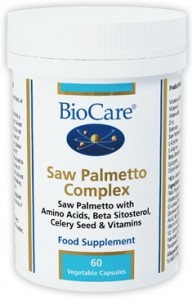Few women look forward to it, some dread it and many find it a challenging interference in living their everyday lives – it’s ‘the change’ or the menopause. And it’s worth talking about here because, while it inevitably affects the majority of woman in middle-age, the individual experience can vary a great deal and there are things you can do to alleviate its most dramatic symptoms – including looking to supplementation.
Also referred to as ‘the change of life’, the menopause is the biological alteration that happens in a woman’s body so she no longer has periods. The average age at which it occurs is 51 years-old – for most women, it occurs between 45 and 55 years-old1.
What happens is there’s change in the balance of the female body’s sex hormones, ensuring periods no longer occur. This is because the ovaries stop producing enough of the hormone oestrogen to release an egg each month.
Premature menopause
Now, when they reach middle-age, many women are only too aware they’ll soon enter menopause and so are also aware of what’s likely to happen to their bodies and many of the effects they’ll experience. However, there are occasions when menopause happens to women younger than the average age (or age range) mentioned above. Indeed, about one in 100 women under the age of 40 experiences it1.
In many cases, there’s no clear cause for premature menopause – or premature ovarian insufficiency, as it’s sometimes called. Although, it may happen as a result of surgery to remove ovaries (oophorectomy), specific breast cancer treatments or the general cancer treatments that are chemotherapy and radiotherapy1. Moreover, underlying medical conditions like Down’s syndrome or Addison’s disease may be ultimately responsible1.
Symptoms
So what symptoms should either middle-aged or younger women expect when their menopause occurs? Well, sometimes starting months (or even years) before your periods cease and possibly continuing up to four years (or more) following your final period, the following symptoms can vary a great deal in severity, depending on individual experience:
- Hot flushes – possibly caused by hormone changes affecting the body’s temperature control, they’re experienced by three in four menopausal women2
- Night sweats – alternatively referred to as nocturnal hyperhidrosis, night sweating can potentially (and embarrassingly) drench bedclothes1
- Mood swings and anxiety1
- Difficulty sleeping (insomnia)1
- Difficulty concentrating or remembering things1
- Vaginal dryness and irritability – otherwise known as atrophic vaginitis, it can lead to a burning sensation, reduced sex drive and possibly repeated urinary tract infections (UTIs)3.
Health problems
The loss of oestrogen associated with menopause has been linked to a number of health problems that become more common as women age. After menopause, women are more likely to develop:
- Osteoporosis1
- Heart disease1
- Bladder and bowel issues1
- Increased risk of Alzheimer’s disease1
- Increased wrinkling of the skin and less elasticity 1
- Reduced muscle tone/ power1
- Vision deterioration – and possibly cataracts (clouding of the eye lens)1
It should be pointed out, however, that just because a woman has been through menopause, she won’t definitely develop any (or certainly all) of the above disorders – so there’s no need for concern here; it’s just more likely a woman might develop them than before menopause.
Easing symptoms
The reality is that, happily, a lot of women go through their menopause experiencing little discomfort, but for others that’s not the case. Indeed, in some cases, menopause-related symptoms can be so severe that sufferers seek treatment to help ease their effects on everyday life. Such treatments include:
- Maintaining a balanced, healthy diet and getting regular exercise – remaining fit and strong and keeping a sensible weight can help alleviate some symptoms1
- Hormone replacement therapy (HRT) – replaces the oestrogen lost via tablets, gels, skin patches and implants1
- Cognitive behavioural therapy (CBT) – a form of talking therapy that helps some who suffer from low mood and anxiety1
- Vaginal oestrogen treatment – usually in the form of creams, lubricants and moisturisers to treat vaginal dryness1
Supplements
Alternatively, you may find supplementation an easier and more suitable way to treat the effects of menopause. All of the following menopause supplements are available through The Finchley Clinic:
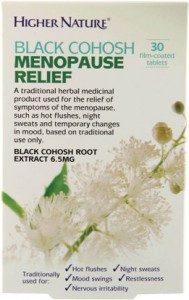
Black Cohosh Menopause Relief (30 tablets) – derived from a plant used for traditional medicinal use by indigenous American people, it can be taken to relieve hot flushes, night sweats, mood swings, nervous irritability and restlessness
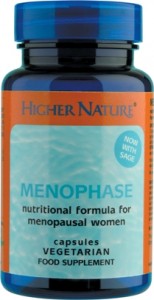
Menophase (90 and 30 capsules) – great for health, wellbeing, vitality, relaxation and energy production during the menopausal years; blends vitamins and minerals with added botanicals, as well as additional Vitamin E to protect against age-accelerating free radical damage
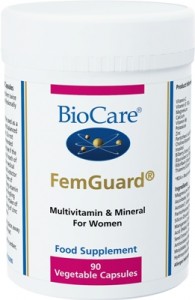
FemGuard (Multinutrient for Menopause) (90 capsules) – a comprehensive, high-power product containing high ratios of nutrients to support female hormonal balance, bone density and cardiovascular health
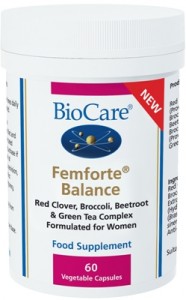
Femforte Balance (60 capsules) – a combination of botanical extracts to help balance oestrogen levels and detoxify potent oestrogens associated with illness; ideal for menopause, PMS and menstrual irregularity
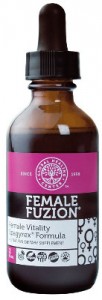
Female Fuzion (2floz) – assists the female body in regulating proper hormone balance for superior vitality, energy, sex drive and general wellness.
References
1 http://www.nhs.uk/conditions/menopause/Pages/Introduction.aspx
2 http://www.nhs.uk/Livewell/menopause/Pages/hot-flushes.aspx
3 http://www.nhs.uk/Conditions/dry-vagina/Pages/Introduction.aspx




